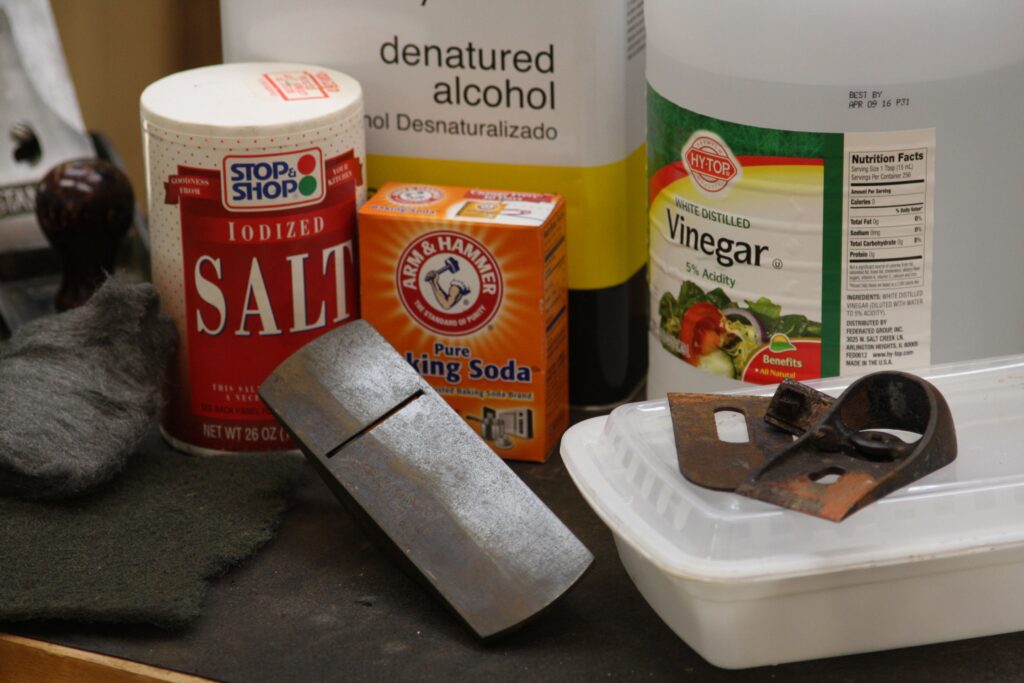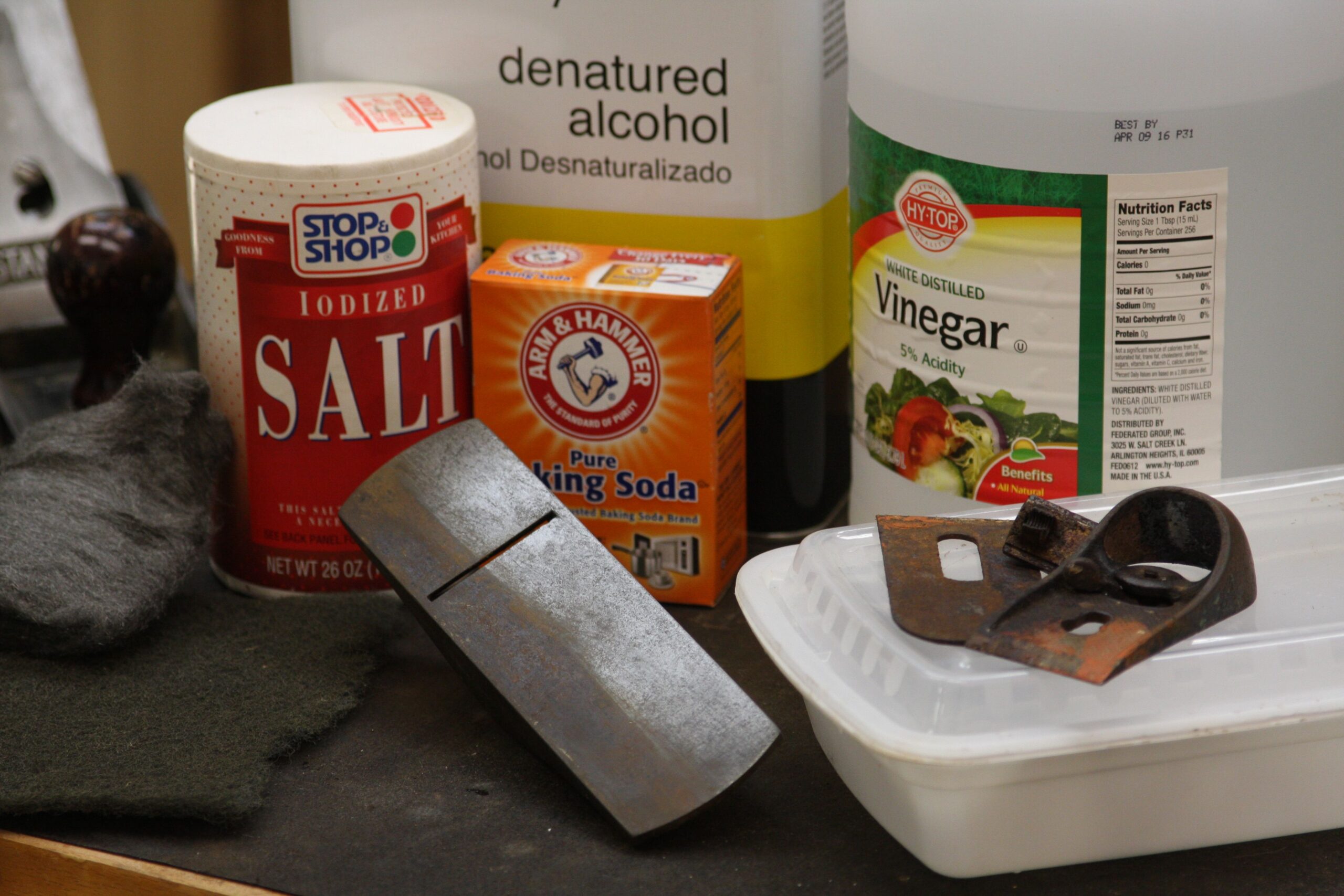
Does Alcohol Remove Rust? Exploring the Effectiveness of Alcohol for Rust Removal
Rust, the reddish-brown iron oxide, is the bane of many homeowners, mechanics, and anyone dealing with metal. Its presence not only mars the aesthetic appeal of objects but also weakens their structural integrity. Naturally, the quest for effective rust removal methods is ongoing. Among the myriad of solutions, alcohol is often mentioned. But does alcohol remove rust effectively? This article delves into the properties of alcohol, its potential for rust removal, and compares it with other, more established methods.
Understanding Rust and Its Formation
Before evaluating the effectiveness of alcohol, it’s crucial to understand what rust is and how it forms. Rust is primarily iron oxide, a compound resulting from the oxidation of iron. This process typically occurs when iron or its alloys, like steel, are exposed to oxygen and moisture. The presence of electrolytes, such as salt, accelerates the rusting process. The chemical reaction is complex, but essentially, iron atoms lose electrons to oxygen atoms, forming iron oxide.
The porous nature of rust allows it to penetrate deeper into the metal, leading to corrosion and eventual weakening of the structure. This is why prompt rust removal is essential for preserving metal objects.
The Properties of Alcohol and Its Potential as a Rust Remover
Alcohol, in its various forms, is a common household and industrial solvent. Isopropyl alcohol (rubbing alcohol) and ethanol are the most frequently encountered types. Alcohol possesses several properties that might suggest a potential for rust removal:
- Solvent Properties: Alcohol is a decent solvent, capable of dissolving certain substances.
- Dehydrating Agent: Alcohol can absorb water, which is a key component in the rusting process.
- Cleaning Agent: Alcohol can remove dirt, grease, and other contaminants from surfaces, potentially improving the effectiveness of other rust removal methods.
However, the crucial question remains: does alcohol remove rust directly? The answer is generally no. Alcohol is not a strong enough reducing agent to chemically convert iron oxide back to iron. Unlike acids or chelating agents specifically designed for rust removal, alcohol lacks the chemical power to break down the strong bonds within the rust molecule.
Why Alcohol Alone Isn’t Enough to Remove Rust
The primary reason alcohol fails as a standalone rust remover lies in its chemical properties. Rust removal typically requires a chemical reaction that either reduces the iron oxide back to iron or dissolves the rust into a soluble form. Acids, such as vinegar or citric acid, achieve this by reacting with the rust, forming iron salts that can be washed away. Chelating agents, like EDTA, bind to the iron ions in the rust, effectively lifting them from the metal surface.
Alcohol, on the other hand, does not participate in such chemical reactions with rust. While it can clean the surface and potentially dehydrate the rust, it cannot break down the iron oxide itself. Therefore, relying solely on alcohol to remove rust is unlikely to yield satisfactory results.
How Alcohol Can Be Used in Conjunction with Other Rust Removal Methods
While alcohol isn’t effective as a primary rust remover, it can play a supporting role in the rust removal process. Here are some ways alcohol can be used in conjunction with other methods:
- Surface Preparation: Before applying a rust remover, cleaning the surface with alcohol can remove dirt, grease, and other contaminants. This ensures that the rust remover can directly contact the rust, maximizing its effectiveness.
- Drying Agent: After using a water-based rust removal method, such as vinegar or citric acid, rinsing the metal with alcohol can help remove residual moisture. This is particularly useful in preventing flash rust, which is the rapid formation of rust on a freshly cleaned surface.
- Cleaning Abrasives: When using abrasive methods like steel wool or sandpaper, alcohol can be used to clean the abrasive material and the metal surface. This helps prevent the transfer of contaminants and ensures a cleaner finish.
- Protecting Cleaned Surfaces: Applying a thin layer of alcohol to a cleaned metal surface can temporarily displace moisture and provide a short-term barrier against rust formation, especially before applying a protective coating like paint or sealant.
Effective Rust Removal Methods: Alternatives to Alcohol
Since alcohol is not a reliable rust remover on its own, it’s essential to explore alternative methods that are proven to be effective. Here are some popular and effective rust removal techniques:
Vinegar
Vinegar, specifically white vinegar, contains acetic acid, which reacts with rust to form iron acetate and water. Submerging small items in vinegar for several hours or overnight can effectively dissolve the rust. For larger items, vinegar-soaked cloths can be applied to the rusted areas. [See also: Using Vinegar to Remove Rust]
Citric Acid
Citric acid, commonly found in lemons and limes, is another effective rust remover. It’s generally considered gentler than vinegar. A solution of citric acid and water can be used to soak rusted items or applied to larger surfaces. [See also: Citric Acid Rust Removal Guide]
Baking Soda
Baking soda, or sodium bicarbonate, is a mild abrasive and alkaline substance. A paste of baking soda and water can be applied to rusted areas and scrubbed with a brush or cloth. While not as potent as acids, baking soda can help loosen and remove rust, especially on delicate surfaces. [See also: Baking Soda for Rust Removal]
Commercial Rust Removers
Numerous commercial rust removers are available, often containing phosphoric acid, hydrochloric acid, or chelating agents. These products are formulated to effectively dissolve or convert rust. Always follow the manufacturer’s instructions when using commercial rust removers and take necessary safety precautions, such as wearing gloves and eye protection. [See also: Best Commercial Rust Removers]
Abrasive Methods
Abrasive methods, such as wire brushing, sanding, or using steel wool, can physically remove rust from metal surfaces. These methods are effective for removing thick layers of rust but can also scratch the underlying metal if not used carefully. Power tools like angle grinders with wire wheels or sanding discs can speed up the process but require caution and proper safety gear. [See also: Removing Rust with Abrasives]
Electrolysis
Electrolysis is a more advanced rust removal method that uses an electric current to reduce the iron oxide back to iron. It involves submerging the rusted object in an electrolytic solution and connecting it to a negative electrode (cathode), while a sacrificial anode (usually a piece of steel) is connected to the positive electrode. When a current is applied, the rust is gradually converted back to iron. [See also: Electrolytic Rust Removal Process]
Preventing Rust: Long-Term Strategies
Preventing rust is always better than trying to remove it. Here are some strategies to protect metal objects from rust:
- Protective Coatings: Applying protective coatings like paint, powder coating, or galvanizing creates a barrier between the metal and the environment, preventing oxidation.
- Oiling and Greasing: Applying oil or grease to metal surfaces provides a barrier against moisture and oxygen. This is particularly useful for moving parts and tools.
- Regular Cleaning: Regularly cleaning metal objects to remove dirt, salt, and other contaminants can prevent the buildup of rust-promoting substances.
- Dehumidification: Storing metal objects in a dry environment reduces the risk of rust formation. Using dehumidifiers in storage areas can help maintain low humidity levels.
- Rust Inhibitors: Applying rust inhibitors or corrosion inhibitors to metal surfaces can provide a protective layer that slows down the rusting process.
Conclusion: The Role of Alcohol in Rust Removal
In conclusion, while alcohol possesses some beneficial properties as a solvent and cleaning agent, it is not an effective standalone rust remover. Does alcohol remove rust? The answer is a definitive no. Its chemical properties do not allow it to break down iron oxide. However, alcohol can be a valuable tool in conjunction with other rust removal methods, such as preparing surfaces, drying cleaned metal, and cleaning abrasives. For effective rust removal, consider using vinegar, citric acid, baking soda, commercial rust removers, or abrasive methods. Furthermore, implementing preventive measures is crucial for long-term protection against rust.

